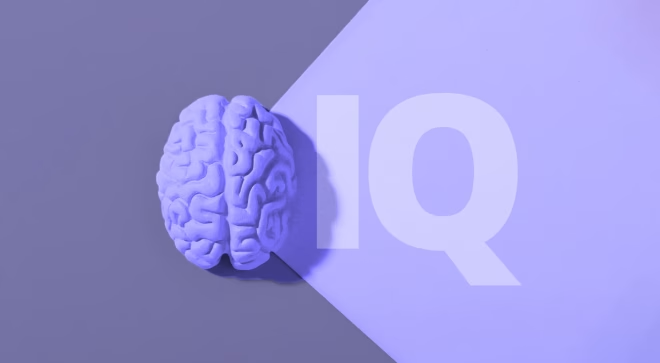
Improve your IQ! 7 tips to improve your IQ
Intelligence quotient (IQ) is a measure of a person’s intelligence and mental agility. The importance of human intelligence in this age of intelligence cannot be overlooked! Intelligence quotient (IQ) is a measure of a person’s intelligence, intellectual ability, and mental agility. Factors such as genetics, health, upbringing, education, social or economic conditions, and lifestyle can affect your IQ. Even if you are a person with a lower IQ, you can train your brain to be faster by practicing simple or difficult tasks for your brain. If you want to know how to improve your IQ, let us share some suggested ideas to increase your IQ.
What is an IQ level?
Your IQ level gives a good idea of your mental abilities as well as other abilities such as visual perception, memory, and quantitative analysis. While these factors play a large role in determining your intelligence, they are not the only ones. Also, intelligence is not the only thing that predicts a person’s intelligence or success in life.
For example, IQ tests help measure a person’s intelligence, but they cannot help measure that person’s creativity. Also, IQ tests do not measure emotional intelligence or critical thinking. In fact, the combination of all these factors determines a person’s success in life. However, doctors still use IQ tests as the first step in diagnosing some mental illnesses or learning disabilities.

How can you improve your IQ?
Your IQ test helps paint a fair picture of your intelligence, but your actions and efforts throughout your life are just as important. According to Intelligence Magazine, you can improve your IQ by regularly studying a variety of areas measured by IQ tests, which can help improve your scores. There are also activities that can help you improve your thinking, problem-solving and strategic planning.
1. Memory-related tasks
Memory activities not only improve your memory, but also your thinking and language skills. According to the Journal of Visualization Experiments, memory games are used in research to explore the relationship between memory and word or object knowledge.
Thinking and language are both used to measure intelligence, so working memory is said to improve intelligence. Some memory activities include:
- Jigsaw puzzle
- Sudoku
- Crossword puzzle
- Card matching
2. Visual-spatial reasoning activities
Visual-spatial reasoning involves the use of mental processes related to physical representation. For example, reading and interpreting pictures involves the use of visual-spatial processing and thinking. These activities can help increase your IQ score. According to Frontier Magazine, visual acuity is related to young Chinese learning math and other reading skills.
Some activities include:
- Unfolded prisms
- 3D models
- Point-of-view activities
- Mazes
3. Relational skills
Relational Framework Theory (RFT) is about human intelligence and language development through relationships with organizations. The theory says that the basis of human language and knowledge is more common, meaning that humans have the ability to make two-way connections between things.
For example, understand that the words “dinner” and “supper” are two ways of describing the same thing. A 2016 study found that using RFT as an intervention improved children’s IQ scores.
Activities involving relational skills include:
- Textbooks (distinction between this and that)
- Comparable goods (full cups and empty cups)
- Comparison of value (change and penny)
4. Frequently reading
Books are treasures of knowledge and wisdom. You can develop your intellectual ability by reading. In fact, the benefits of reading are even more significant when reading is part of the parent bonding activity.
According to the Journal of Selective Deposits of the American Academy of Pediatrics, studies have shown that children can develop a good vocabulary and skills when parents read books aloud to their children.
5. Continuous learning through education
There is no end or age to learning through education. All types of education are necessary for the development of human intelligence.
6. Learn a new language
It’s no surprise that learning more than one language benefits the human brain in many ways. The earlier you start studying, the better. However, the age at which you learn is important in determining how well learning a new language will improve your brain. According to the Journal of Psychology and Aging, adults who received 11 weeks of language training did not experience significant improvements in intelligence or IQ scores.
Learning new words helps increase IQ scores, but the real period that affects IQ scores is childhood.
7. Learn a piece of musical instrument
Learning music doesn’t mean you have to be the next great musician. According to the Journal of Cognitive Processing, 75 minutes of music lessons per week for 12 weeks increased preschoolers’ IQ scores. Adults can benefit from music education, too.
Frontiers in Psychology found a correlation between the duration of music practice and performance in adults.
There are also benefits to listening to music. A music-rich environment can improve children’s verbal IQ scores, according to the PloS One Journal.

